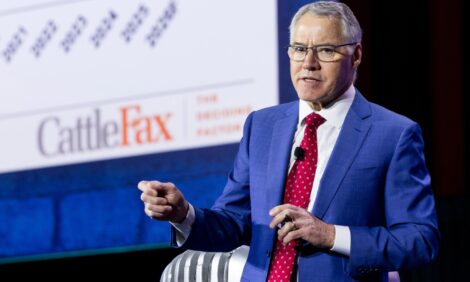



Curbing Rainforest Destruction is Work in Progress
BRAZIL – Amazonian rainforest destruction by the cattle industry is being slowed by deforestation agreements, although researchers assessing the new scheme’s implementation say there are ways to play the system.Supply-chain pressure has been vamped up on beef producers in the state of Parana in Brazil which have included ‘zero deforestation agreements’.
Imposed by processors, the agreements have been widely adopted with the threat that the buyer wont take beef from a farm that has recently used deforestation.
The researchers see this is as a force for good but those analysing the scheme say there is much work still to do.
The initiative is viewed as a ‘gradual sea change’ which has yielded ‘important and encouraging results’ in the eyes of a researchers led by a University of Wisconsin team.
Processing giant JBS has reported a drop in the number of its suppliers committing deforestation from 40 per cent to four per cent. Marfrig and Minerva are also on board with the scheme.
However, Brazil’s stratified beef supply chain means beef is deemed rainforest friendly when in reality only the last days were spent at a feedlot conforming to standards.
Similarly, ranchers can avoid forest-friendly policies by supplying the many slaughterhouses not monitoring their supplying properties.
Cattle can be calved, reared, weaned and fattened on properties with illegal deforestation and then, just prior to sale to JBS, can be moved to a ‘clean’ farm, explained the University.
Professor Holly Gibbs, University Wisconsin, is positive that large corporations are now willing to cooperate on environmental issues and are now helping to lead sustainable agriculture.
She said: "Every few weeks we see a major global corporation come forward and commit to removing deforestation from their supply chain.
"These multinational companies have long profited from the exploitation of tropical forests, but they're now at the forefront of an environmental movement to reduce the deforestation caused by agricultural expansion."
She said 'rapid changes' are being brought about through zero-deforestation contracts, despite the formidable task of enforcing environmental laws in a region six times that of Texas.
Michael Priestley
News Team - Editor
Mainly production and market stories on ruminants sector. Works closely with sustainability consultants at FAI Farms



